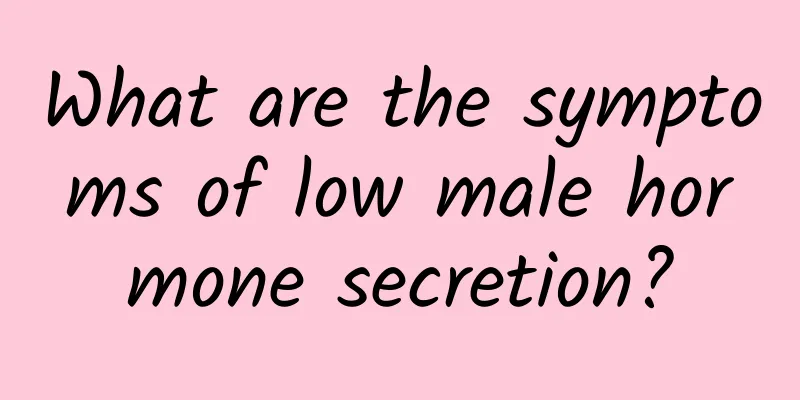Clinical manifestations and treatment of prostatitis

|
We know that prostate problems have always been a big problem that troubles our male compatriots. It is a secret that many male compatriots cannot talk about. The solution to prostatitis is becoming more and more important. So what are the clinical manifestations of prostatitis? How to treat it? Let's follow the following article to learn more about it. Performance: Type I often presents with sudden onset, with systemic symptoms such as chills, fever, fatigue, and weakness, accompanied by perineal and suprapubic pain, and even acute urinary retention. Type II and Type III have similar clinical symptoms, often with pain and abnormal urination. Regardless of the type of chronic prostatitis, similar clinical symptoms can be manifested, collectively referred to as prostatitis syndrome, including pelvic and sacral pain, abnormal urination, and sexual dysfunction. Pelvic and sacral pain is extremely complex, and the pain is generally located in the suprapubic, lumbar and perineal regions. Radiating pain can manifest as pain in the urethra, spermatic cord, testicles, groin, and lateral abdominal area. It radiates to the abdomen, similar to acute abdominal pain, and radiates along the urinary tract, similar to angina, which often leads to misdiagnosis. Abnormal urination is manifested by frequent urination, urgent urination, painful urination, difficulty urinating, bifurcated urine stream, dripping after urination, increased frequency of nocturia, and milky white discharge from the urethra after urination or defecation. Occasionally, sexual dysfunction occurs, including decreased libido, premature ejaculation, painful ejaculation, weak erection, and impotence. Type IV has no clinical symptoms. Treatment countermeasures: The disease is difficult to treat, requires a long course of treatment, and is prone to relapse. Currently, quinolone drugs such as ofloxacin or levofloxacin are recommended. If ineffective, continue to use it for 8 weeks. If recurrence occurs and the bacterial species remains unchanged, switch to preventive doses to reduce acute attacks and relieve symptoms. If long-term use of antibiotics induces serious side effects, such as pseudomembranous colitis, diarrhea, and the growth of intestinal resistant strains, the treatment plan needs to be changed. Whether non-bacterial prostatitis is suitable for treatment with antibacterial drugs is still controversial in the clinic. Patients with "aseptic" prostatitis can also use drugs that are effective against bacteria and mycoplasmas, such as quinolones, SMZ-TMP or TMP alone, used in combination with tetracycline and quinolones or used intermittently. If antibiotic treatment is ineffective and it is confirmed to be aseptic prostatitis, antibiotic treatment should be discontinued. In addition, using a double balloon catheter to block the prostatic urethra and injecting antibiotic solution from the urethral cavity back into the prostatic duct can also achieve the purpose of treatment. Type I is mainly treated with broad-spectrum antibiotics, symptomatic treatment and supportive treatment. Type II is recommended to be treated with oral antibiotics, and sensitive drugs are selected. The course of treatment is 4-6 weeks, during which the patient should be evaluated for the efficacy. Type III can first take oral antibiotics for 2 to 4 weeks and then evaluate the efficacy. At the same time, non-steroidal anti-inflammatory drugs, α-receptor antagonists, M-receptor antagonists, etc. are used to improve urination symptoms and pain. Type IV does not require treatment. The above content introduces us to the clinical manifestations and treatment issues of prostatitis. We can treat our own prostate problems based on the above content, and we can also tell the above methods to our male compatriots to bring confidence and health to more male compatriots. |
>>: When can a woman not touch a man?
Recommend
Why do boys get hard in the morning?
Why do men get hard in the morning? Many married ...
What are the tips for treating premature ejaculation?
Premature ejaculation is a common disease among m...
Six methods for people with oligospermia to maintain their sperm
1. The male scrotum prefers a lower temperature e...
Six harmful effects on men's sexual health
1. Excessive smoking According to surveys, the pr...
What kind of exercise can boys do to reduce belly fat and what should they pay attention to?
Boys who pursue perfection definitely pursue a pe...
Things to note after circumcision
Phimosis is very familiar to people, and the situ...
How to treat chronic glansitis?
There are many diseases in life that will have a ...
Which electric shaver is the best? Several methods to help you choose without worries
Taking good care of one's appearance is the p...
Scrotal itching and bumps pictures
The scrotum is the lifeline of men, and it is par...
What does it mean if there is white substance on the glans?
Sometimes you will find something white on the gl...
What causes pain in the male urethra?
Many male friends will find that there is a sudde...
How big is the prostate considered enlarged?
Another name for prostate hypertrophy is prostate...
How long does penile suture surgery last?
Men all hope to have good male sexual function. I...
Which days have the best sperm quality?
Many couples who are preparing for pregnancy will...
Frequent urination and urgency for several days after intercourse
Men and women should pay attention to hygiene dur...









